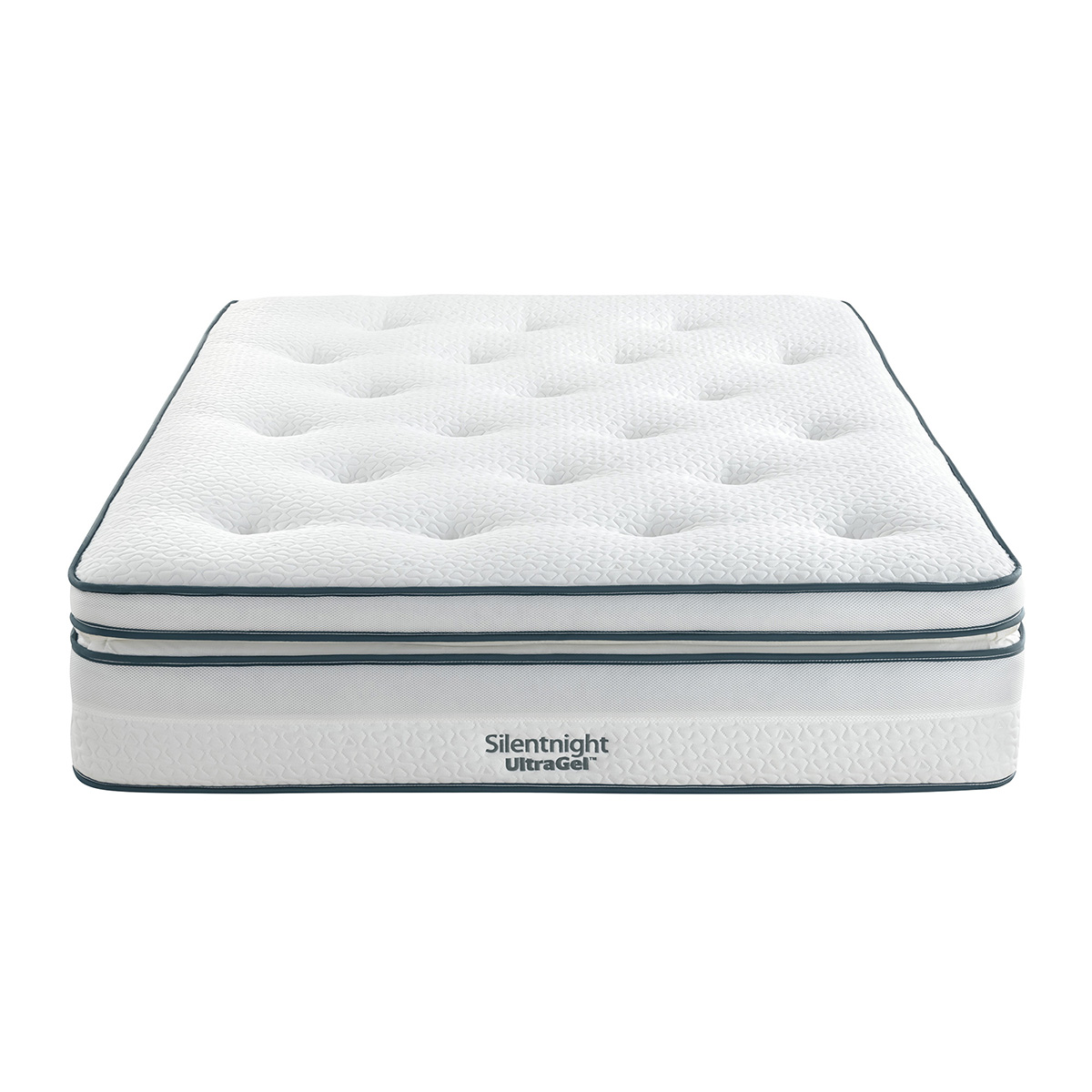the power of deep sleep

We all love a good night's rest, but do we truly understand the significance of deep sleep? And how much deep sleep should you get every night? Discover the benefits of deep sleep as we shed light on the essential practice of sleep hygiene for improved overall well-being. In this blog post, we explore the importance of this crucial sleep stage, its benefits for our overall well-being, and practical tips on how to increase deep sleep for a more restful night.
what is deep sleep?
Deep sleep is the stage of sleep characterised by the slowest brain waves and complete physical relaxation. It promotes physical recovery, strengthens the immune system, and enhances mental clarity and overall well-being.
During deep sleep, your body’s automatic functions, such as breathing and heart rate slow and your muscles relax. It’s often difficult to wake up from a deep sleep, and if you do wake up, you may feel groggy for around an hour, which is why waking gradually can give you a better, more awake start to the day - routine is key to achieving this.
the four stages of sleep
When you fall into a peaceful slumber, your body cycles through four sleep stages. It takes around 90-120 minutes to cycle through all sleep stages and adults have around 4-6 cycles each night. During the first half of the night, you spend more time in NREM (non-rapid eye movement) sleep and as the night goes on, more time is spent in REM (rapid eye movement) sleep. The stages of sleep are as follows:
Stage 1 - This short, drowsy stage is the transition to sleep, where your breathing and heart rate slow down.
Stage 2 - During this stage your breathing and heart rate slow further whilst your body temperature drops and muscles relax. This stage lasts longer with each cycle during the night, with about half of your total sleep time spent in this phase.
Stage 3 - This stage is deep sleep (or slow-wave sleep), which is the deepest part of sleep. Your brain waves are at their slowest frequency during this third stage.
Stage 4 - In this stage, which is called REM, your eyes move quickly beneath your eyelids and brain activity is similar to when you’re awake. But your relaxed muscles do not move. Dreams during REM sleep are the most vivid and memorable.
the benefits of deep sleep
Even though each stage of sleep benefits your overall health, deep sleep is what leaves you feeling rested and restored and has specific physical and mental benefits.
Enhanced physical restoration - During deep sleep, your body undergoes essential processes for physical restoration. It’s during this phase that your muscles repair and grow, promoting optimal recovery from physical exertion. Deep sleep also stimulates the release of growth hormones, contributing to tissue repair and overall rejuvenation.
Improved cognitive function - Deep sleep plays a vital role in sharpening our cognitive abilities. Research suggests that this sleep stage is associated with memory consolidation, helping to solidify and retain new information acquired throughout the day. Additionally, deep sleep is believed to boost creativity, problem-solving skills, and overall mental clarity.
Strengthened immune system - A robust immune system is key to staying healthy and fending off illnesses. Deep sleep regulates the production of cytokines, which are proteins involved in immune response.
Regulation of hormones - Proper hormonal balance is crucial for both physical and mental well-being. Deep sleep helps regulate the levels of hormones such as cortisol (stress hormone), insulin (blood sugar regulation), and leptin (appetite control). Adequate deep sleep ensures that these hormones are released in the right amounts, maintaining a healthy metabolism and preventing hormonal imbalances.
Emotional resilience and mental health - Deep sleep not only rejuvenates our physical bodies but also cultivates emotional resilience and mental well-being. Lack of deep sleep has been associated with increased levels of stress, anxiety, and even depression. By prioritising deep sleep, you provide your brain with the rest it needs to regulate emotions effectively, reducing stress levels and promoting a positive mindset.
how much deep sleep do you need?
Most adults need around 7-9 hours of sleep and this gives the body sufficient time for the deeper stages of sleep, and 12-20% of our overall night-time sleep should be deep sleep.
If you are suffering from sleep deprivation or get short amounts of sleep over a week, then you may spend more time in deep sleep. Also, as we age, less time is spent in deep sleep and more time is spent in light sleep.
what are the signs I’m not getting enough deep sleep?
Since deep sleep is crucial for our overall well-being, it's important to recognise signs of its absence. Some indicators that you may not be getting enough deep sleep include feeling constantly fatigued, experiencing difficulty concentrating, struggling with memory problems, feeling irritable or moody, and having an increased appetite. Prioritising quality sleep is essential for reaping the benefits of deep rest.
If you’re providing yourself with enough opportunity to sleep for the recommended 7-9 hours per night, then these could be signs you are not getting enough deep sleep:
Not feeling refreshed when you wake
Drowsiness
Reduced attention span
Excessive cravings for high calorific food
how to get more deep sleep
Aiming for a consistent sleep-wake schedule helps to develop a healthy sleep routine for your body. So, getting the quality sleep you need each night goes a long way to helping you get the right amount of deep sleep as our bodies will produce the right amount of each sleep stage if given enough time and the right environment. If you struggle to get the sleep you need, several things can help, including:
A mattress that offers the right support and comfort levels: this can play a vital role in helping you fall asleep and stay asleep.
Create an optimal sleep environment - your bedroom should be dark, cool and quiet.
Aim to go to bed and wake up at the same time each day.
Get plenty of regular exercise consisting of 20-30 minutes each day. This can be as simple as walking. This exercise should not be too close to bedtime or it may affect your sleep.
Eat a healthy diet, and avoid large meals close to bedtime.
Reduce your caffeine intake and avoid caffeine in the evenings.
Create a wind-down routine: find something relaxing such as reading a book or listening to relaxing music to calm you and signal to your brain that it’s time to go to sleep.



























